‘The role of the designer is not to imagine the future but to build it’
Events
-
March 31, 2025
Conference at Suzhou University
Christian Guellerin will host a keynote on the concept of ethical leadership at an international conference organized by Jiangnan University School of Design. The conference brings together leading design academics and practitioners from around the world for an in-depth discussion of how design fulfills its essence in today's era of globalization and complex challenges.
-
November 8, 2024
Keynote about ethical leadership in China
Christian Guellerin will host a keynote on the concept of ethical leadership at an international conference organized by Jiangnan University School of Design. The conference brings together leading design academics and practitioners from around the world for an in-depth discussion of how design fulfills its essence in today's era of globalization and complex challenges.
-
October 16, 2024
Conference Cumulus Monterrey
Christian Guellerin, Honorary President of Cumulus, International Association of Universities and Colleges of Art, Design and Media & Executive Director of L’École de design Nantes Atlantique participates in Cumulus Monterrey 2024 which as theme "Design Across Borders: United in Creativity" and speaks at a conference entitled “Business, Industry and Innovation”.

-
September 24, 2024
Sustainable design for the future
Christian Guellerin will participate in the international forum “Sustainable design for the future” at Soochow University on Tuesday, September 24. He will talk about how companies will have to change their model, or how companies will have to move from product to service to save resources and how design and designers will adapt by occupying strategic positions.
-
September 11, 2024
"What future for design schools ?"
On the occasion of his presence in Department of Industrial Design, School of Fine Arts, South China Normal University at Guangzhu, Christian Guellerin, Managing Director of L'École de design Nantes Atlantique, will be holding a conference on the theme of "What future for design schools ?" on 11 september 2024 at 7.30pm.
-
April 23, 2024
Benin conference
On the occasion of his visit to Benin, Christian GUELLERIN, Chairman and CEO of Africa Design School, will be holding a conference on the theme of "Design, a strategic approach to innovation at the service of businesses and administrations" at Sèmè One, on 23 April 2024 at 6pm.
Events
-
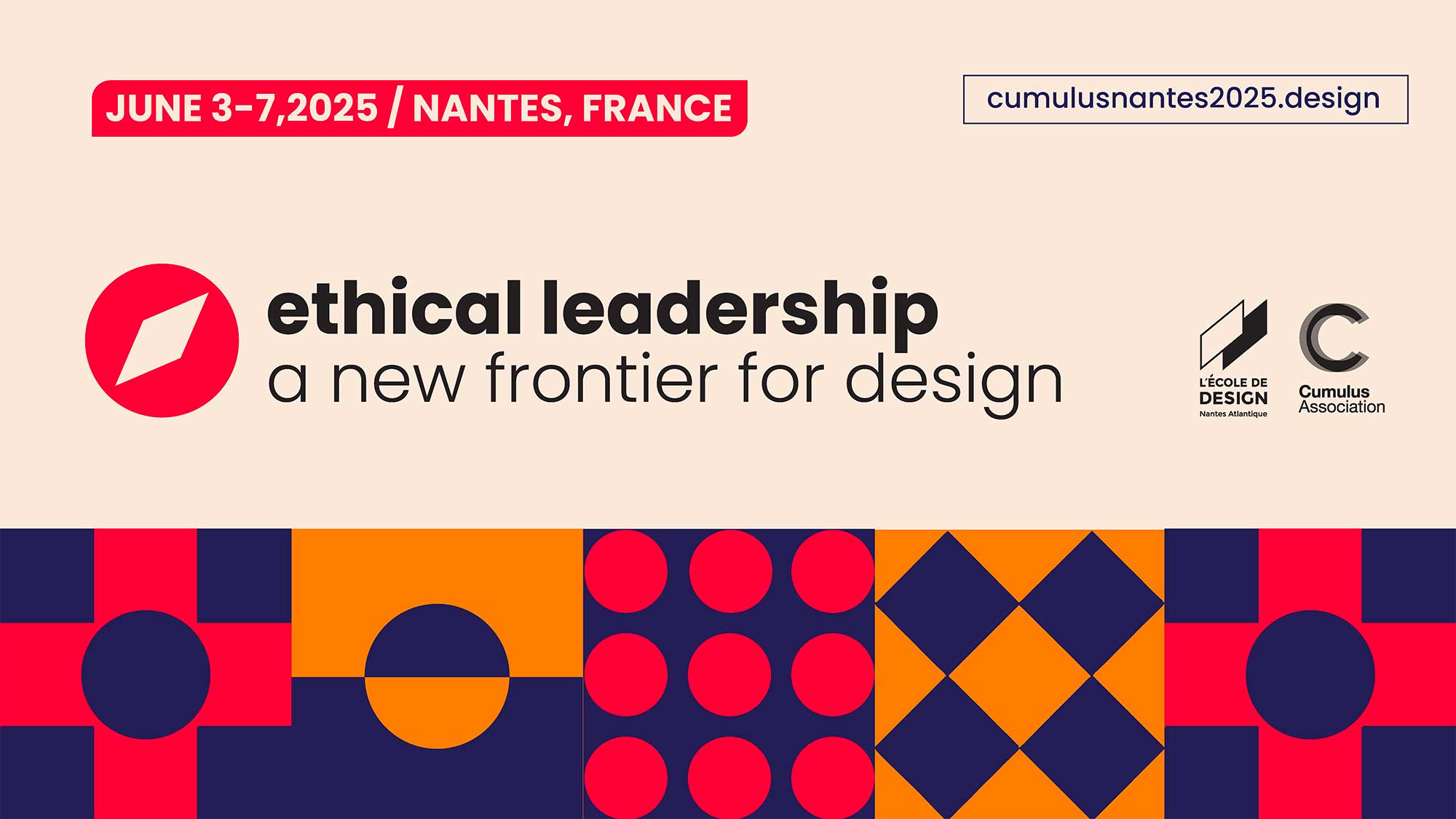
June 3 to 7 in Nantes
Christian Guellerin, Executive Director of L’École Atlantique de design Nantes Atlantique, will be taking part in the Cumulus international association's spring conference on the theme of ethical leadership. The conference will be held at L'École de design Nantes Atlantique from June 3 to 7, 2025.
-
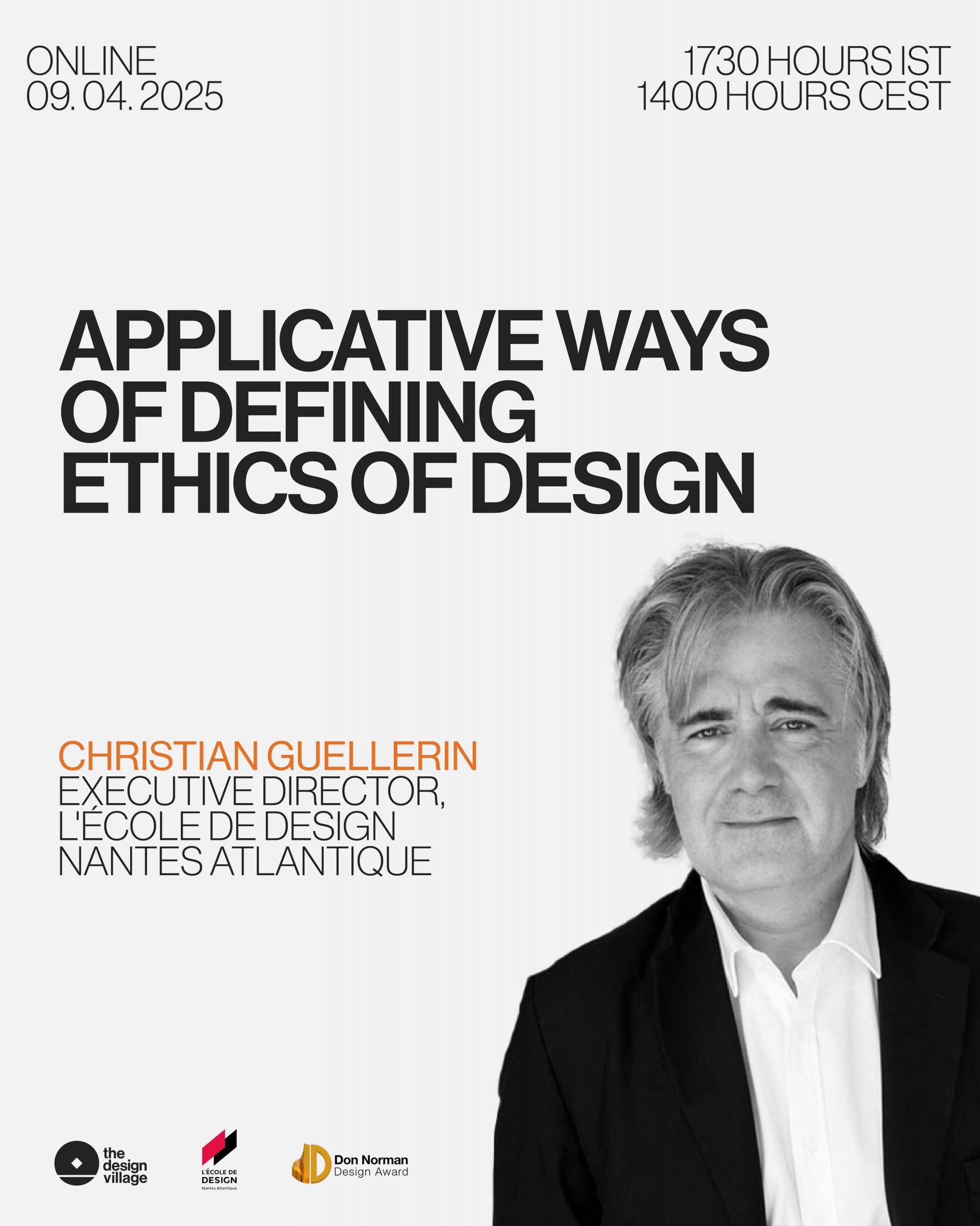
9th april 2025
Master class "Applicative ways of defining ethics of design"
Christian Guellerin, Executive Director of L’École Atlantique design Nantes Atlantique, spoke to students on the theme of ‘Applicative ways of defining ethics of design’, in collaboration with Don Norman Design Awaed (DNDA) and The design Village.
-

3rd april 2025
Conference at Harbin Institute of Technology
Christian Guellerin, Executive Director of L’École Atlantique de Design de Nantes, gave a lecture on « Design, from strategy to ethical leadership » at the Harbin Institute of Technology for students. He also presented the Design Summer Camp programme in July, an opportunity to add an international experience to their design education.
-
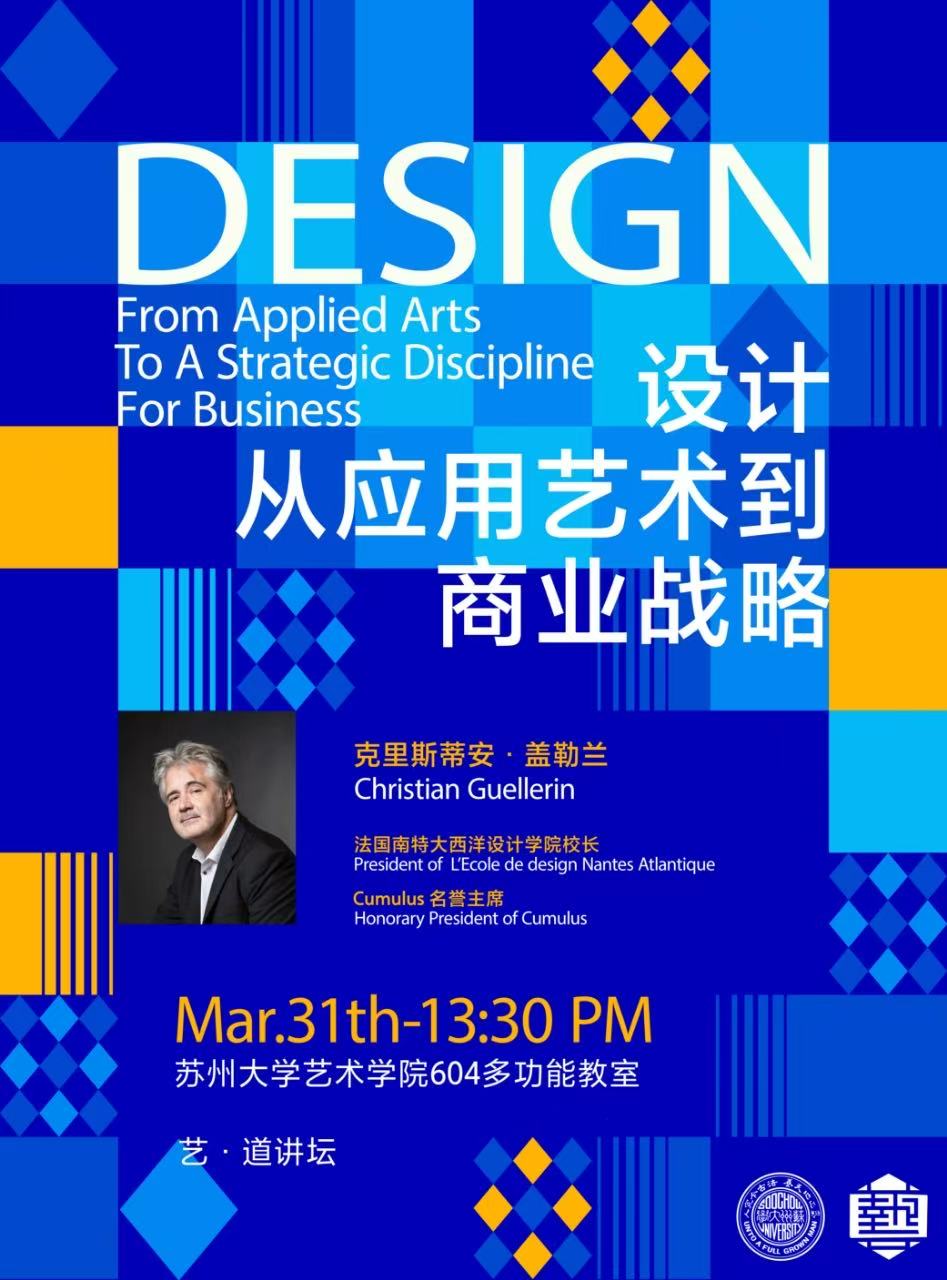
31th March 2025
Conference at Suzhou University
As part of his visit to China, Christian Guellerin, Executive Director of L'École de design Nantes Atlantique, will be speaking at a conference entitled ‘Design From Applied Arts to a Strategic Discipline for Business’ on 31 March at Suzhou University.
-
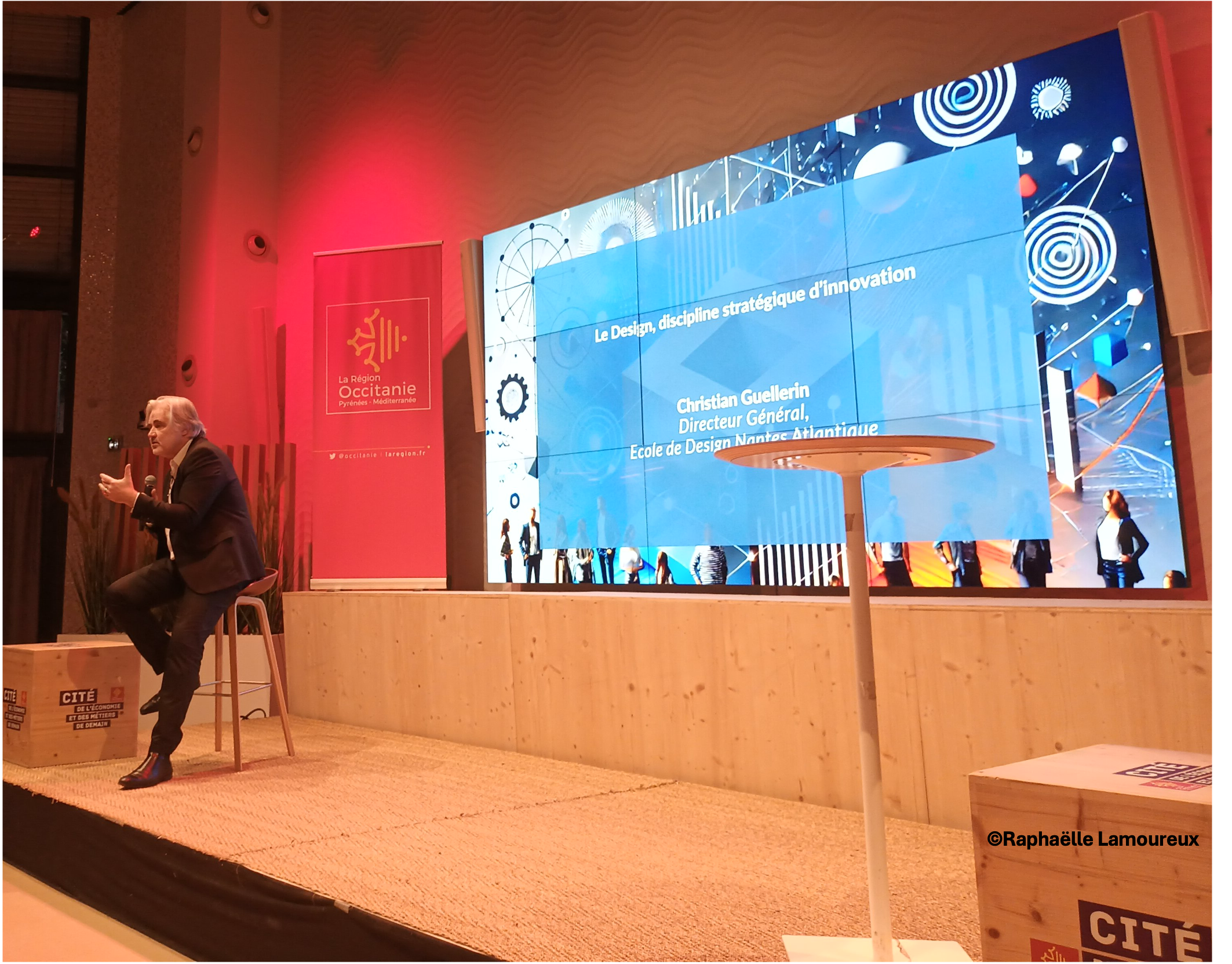
30th January 2025
Conference at the Cité des Sciences et de l'Industrie
On 30 January Christian Guellerin gave a talk on the theme of ‘design, a strategic discipline for innovation’ at the Cité des Sciences et de l'Industrie in Montpellier.
-
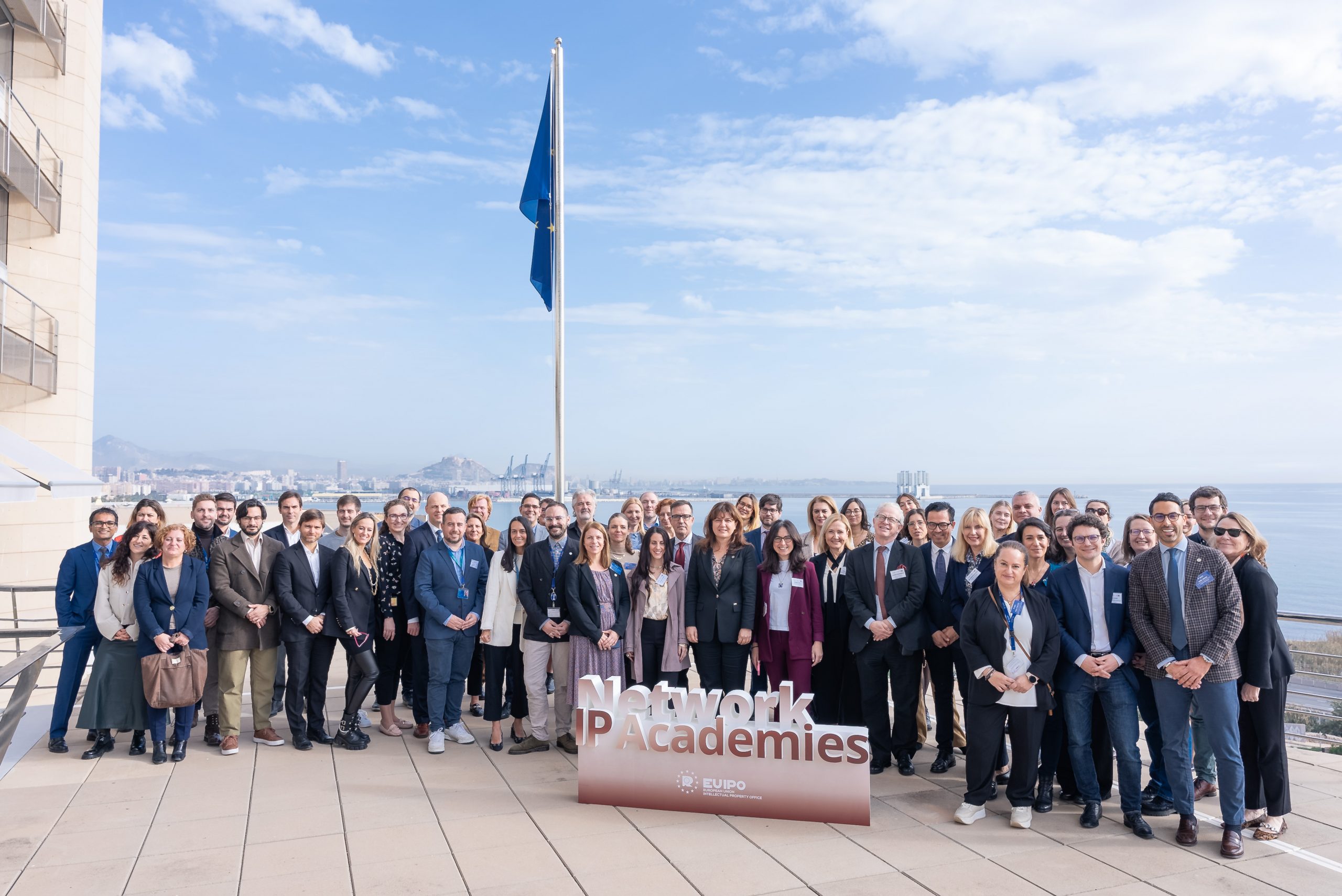
December 2-3, 2024
Network of IP Academies (NIPA) Annual Meeting
Christian Guellerin spoke at the Network of IP Academies (NIPA) on 2 December 2024 in Alicante, in front of more than 150 people from PES universities, EU and non-EU intellectual property offices, Talent Bank associate partners, EPO and EUIPO staff.
-

November 8, 2024
Keynote in China about the ethical leadership
Christian Guellerin will host a keynote on the concept of ethical leadership at an international conference organized by School of Design at Jiangnan University. The conference brings together elite scholars and practitioners in the field of design from around the world to deeply discuss how design responds to its essence in the current era of globalization and complex challenges.
-
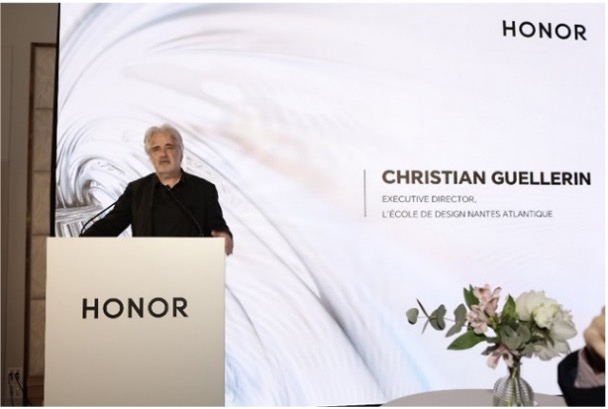
October 30 - November 2, 2024
HONOR Global Design summit
Christian Guellerin spoke at the HONOR Global Design Summit held in China from 30 October to 2 November 2024 on the theme of ‘Art & Technology: Innovation Design the Frontiers’.
-

October 16, 2024
Conference Cumulus Monterrey
Christian Guellerin, Honorary President of Cumulus, International Association of Universities and Colleges of Art, Design and Media & Executive Director of L’École de design Nantes Atlantique participates in Cumulus Monterrey 2024 which as theme "Design Across Borders: United in Creativity" and will be speaking at a conference entitled “Business, Industry and Innovation”.
Last posts
Food design : On the Wealth of Nations
A country’s culinary tradition is one of the constituent elements of the concept of nation. It reflects and affirms its culture and thus its difference, its geography, its history. Eating testifies to where one comes from. Eating creates society. Eating is a pleasure. Eating excites the senses and desire. Eating is orgasmic. “In the beginning …
Read the article in mandarin – 伦理型领导:设计与设计师的新前沿
克里斯蒂安·格勒林 (Christian Guellerin),南特大西洋设计学院执行董事近年来,设计的认知已经发生演变,如今它成为适用于所有问题和领域的战略工具,并从整体上建立了其支持商业和社会的战略本质。设计仍体现在物体外形、室内建筑、平面设计等方面。但如今,它涵盖了经济和组织模式的所有战略考量。随着设计具有了战略性,它已成为一门管理学科,来帮助企业以不同的方式设计、生产和销售产品或服务。设计师在所有公共机构和私营企业中被委以担任管理职位的重任。综合大学和设计院校必须调整课程,来关注和应对这一发展趋势。 阅读全文
Design and ethical leadership, the Educated Human (EH) versus Artificial Intelligence (AI) – What future for design schools
“Intelligence is the ability to adapt” tells us the English astrophysicist Stephen Hawking who died in 2018. But adapt to what and for what ideal? In this world of information and knowledge available to all, of generative artificial intelligence, is it a question of embodying the “Educated Human” of the post-modern era and thinking that …
Do You Speak Good Design ? #1
The future of companies depends on their ability to innovate. They must adapt constantly to radical changes of context which make their future uncertain if they don’t have this capacity to change extremely quickly. These are troubled times: changes in ecological awareness (which require us to save the planet), geopolitical changes with the arrival of major new powers, cultural change accompanied by the decline in morality in favor of law, uncertainty about the relevance of democracy and the role of politics, globalization of trade, digital transition, the ageing population, protein transition, etc. All these issues are disrupting the world, forcing us to rethink it, to transform its nature, to redesign it. While experience is vital for all things, experimentation, or the ability to project yourself into the future in order to better anticipate it, is becoming primordial. Design raises questions about the uses of the future. It draws them, represents them, gives them shape, purpose and meaning. It makes them objective, comprehensible, acceptable. As well as giving them meaning and value, it also makes them virtuous. Design as an economic discipline is a powerful strategic tool which enables us to speculate about the future, influence development choices, propel companies into the future since they have no choice but to anticipate and adapt to rapidly changing environments. Competitive advantage is no longer about the ability to produce better products than your competitors, but about being ahead of the game in terms of understanding how the societies in which we live are changing.
Do You Speak Good Design ? #4
Do You Speak Good Design ? #3
All the editorialists are saying it: Tomorrow will be nothing like before. And is the Covid crisis, by its brutality, by the new outlook it imposes on the world, the harbinger of a new world, one that is more united, more responsible, more aware of the relativity of our planet and our humanity? Or will it only exacerbate individualism, the bitterness of those who were already not comfortable in the world before, to the point of awakening certain detestable instincts of revenge and denunciation? Is capitalism under threat, and our business model with it? How are we going to go from a globalized world, the source of all our ills, to a digitalized world?
Do You Speak Good Design ? #2
At the beginning of the last century, industrial design was born out of a desire to recapture the semiotic values of craftsmanship in industrial production. It was a matter of rediscovering the meaning and the values of manual work, the "open window of the mind"*, at a time when disembodied industrial assembly lines were taking the place of workers in the factory. The preoccupation with the end of work, or rather its replacement by the machine, was already emerging, with the fear that the alienated worker would become a machine himself. No longer having to think, the worker was already less than human. A few decades earlier, Marx ("Theses on Feuerbach" - 1845) had defined the stakes and the responsibility of a world undergoing profound change - "Philosophers have only interpreted the world in various ways, it is now a question of transforming it" - and defined the contours of a new humanism aiming to save humankind from machines and industrial capitalism.
Christian Guellerin
Christian Guellerin (born August 9, 1961 in France) is the Executive Director of L’École de design Nantes Atlantique since 1998. The school has become one of the French and international references in design and innovation education. It has 1,650 students in France and several branches abroad (Shangai, Pune, São Paulo, Montréal and Cotonou). The institution has grown significantly under his leadership, striving to professionalize design studies and facilitate interactions between research, business and society at large. Christian Guellerin is Honorary president of Cumulus, the largest international association of universities and schools of design, art and media. The association includes 340 international institutions on 5 continents. Its headquarter is in Helsinki. He is president of France Design Education, an association of design schools whose purpose is to promote design and applied arts as training, creation, innovation and research activities. Since July 2018, Christian Guellerin is the Honorary President of the Chinese French designer’s association. He speaks at numerous conferences in France and abroad about design, strategy and innovation management. He is the author of numerous articles on design and pedagogy in France and abroad. In 2015 and 2016, he was one of the 50 personalities who make innovation in France according to the magazine “Usine Nouvelle”. In 2016, Christian Guellerin was named Knight of the National Order of Merit. He is President of Design Creative Innovation in Shanghai and President of Africa Design School in Benin, a member of DIID’s Scientific Committee, and Deputy Director and founder of NACAA, the 1st Franco-Chinese design institute in Hangzhu.
L'École de design Nantes Atlantique
Founded in 1988, L’École de design Nantes Atlantique is a partner institute of the Chamber of Commerce and Industry of Nantes-Saint Nazaire, recognized by the State, member of the Conférence des grandes écoles (top-tier French higher education institutions) and associated with l’Université de Nantes. The school trains professionals in creation and innovation in formal full-time education and continuing education. It prides itself on its unique positioning which sees design as a discipline at the crossroads between creation, strategy and management, and offers training programs with a strong professional emphasis (internships, work-study training, prospective studies, workshops, projects). The school awards the Master’s degree in design which is certified by the French Ministry of Higher Education, and the National Diploma of Arts and Design (DN MADE, equivalent to a Bachelor’s degree) through the formal education system and via a work-study program in the Apprentice Training Center (CFA) for Design and Innovation.
With a strong international development policy, L’École de design Nantes Atlantique has branches in Shanghai (China), São Paulo (Brazil), Montreal (Canada) and Cotonou (Benin) with Africa Design School and Africa Studio. A center for research and innovation, the school has opened 5 Design Labs, research platforms dedicated to design-led exploration of topics related to contemporary social, technological and economic changes: Care Design Lab (health & environmental and social quality of life), Food Design Lab (new eating habits), Digital Design Lab (digital innovation), City Design Lab (transition to sustainable cities) and Media Design Lab (communication and information issues). The school also develops research chairs in design.
The school welcomes 1,770 students, including 320 apprentices, and has a network of over 1,000 partner companies and 4,300 graduates.


